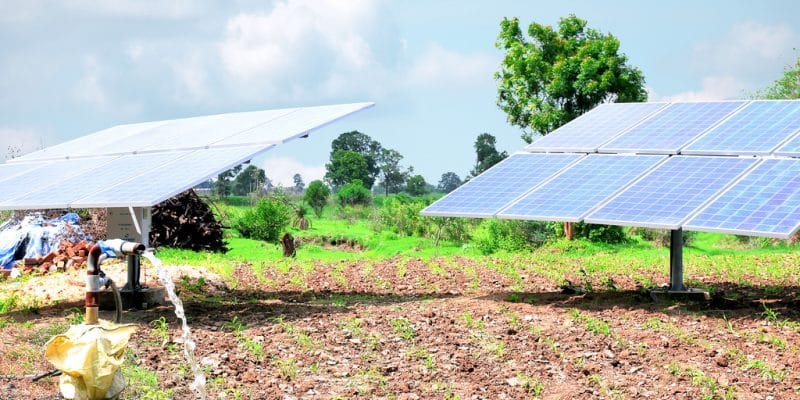The Korea International Cooperation Agency (Koica) and the United Nations Development Programme (UNDP) have signed an agreement to start a project that will lead to the integration of solar energy into the agricultural production process.
Thousands of Sudanese farmers will soon benefit from a project to integrate renewable energy into their production processes. This is the objective of a joint project of the Korean International Cooperation Agency (Koica) and the United Nations Development Programme (UNDP). It is entitled “Promoting renewable energy and sustainable financing as a means of improving farmers’ livelihoods and reducing greenhouse gas emissions”.
The agreement to launch the project was signed between Lee Ki-Seog, Korea’s ambassador to Sudan and Selva Ramachandran, UNDP’s resident representative in Sudan. Under the terms of the agreement between the two institutions, Koica will provide $6.4 million in funding for the project. UNDP will provide $600,000.
Solar pumps for irrigation
The project launched by Koica and UNDP will be completed in 2023. It aims to deploy 450 pumps to supply irrigation systems. These installations will operate with off-grid solar power of 5.12 and 3.12 kWp. The new solar pumps will replace existing devices in small and medium-sized farms in the Nile Basin that run on diesel.
The installations will be subsidised through a financing mechanism under the National PV Fund (Sudan), which aims to remove barriers to significant capital required for the installation of solar energy systems in this East African country. Koica and UNDP estimate that this project will benefit 22,500 people (50% of whom are women) living on agriculture.
Before officially launching the project, UNDP and Koica implemented a pilot phase in seven localities in Northern Sudan State, in collaboration with the Central Bank of Sudan and the Ministry of Finance. This pilot phase led to the creation of the PV Fund. In the field, off-grid solar systems were installed with a cumulative capacity of 257.4 kWp. They are used to supply the irrigation systems that serve 29 farms.
Jean Marie Takouleu







